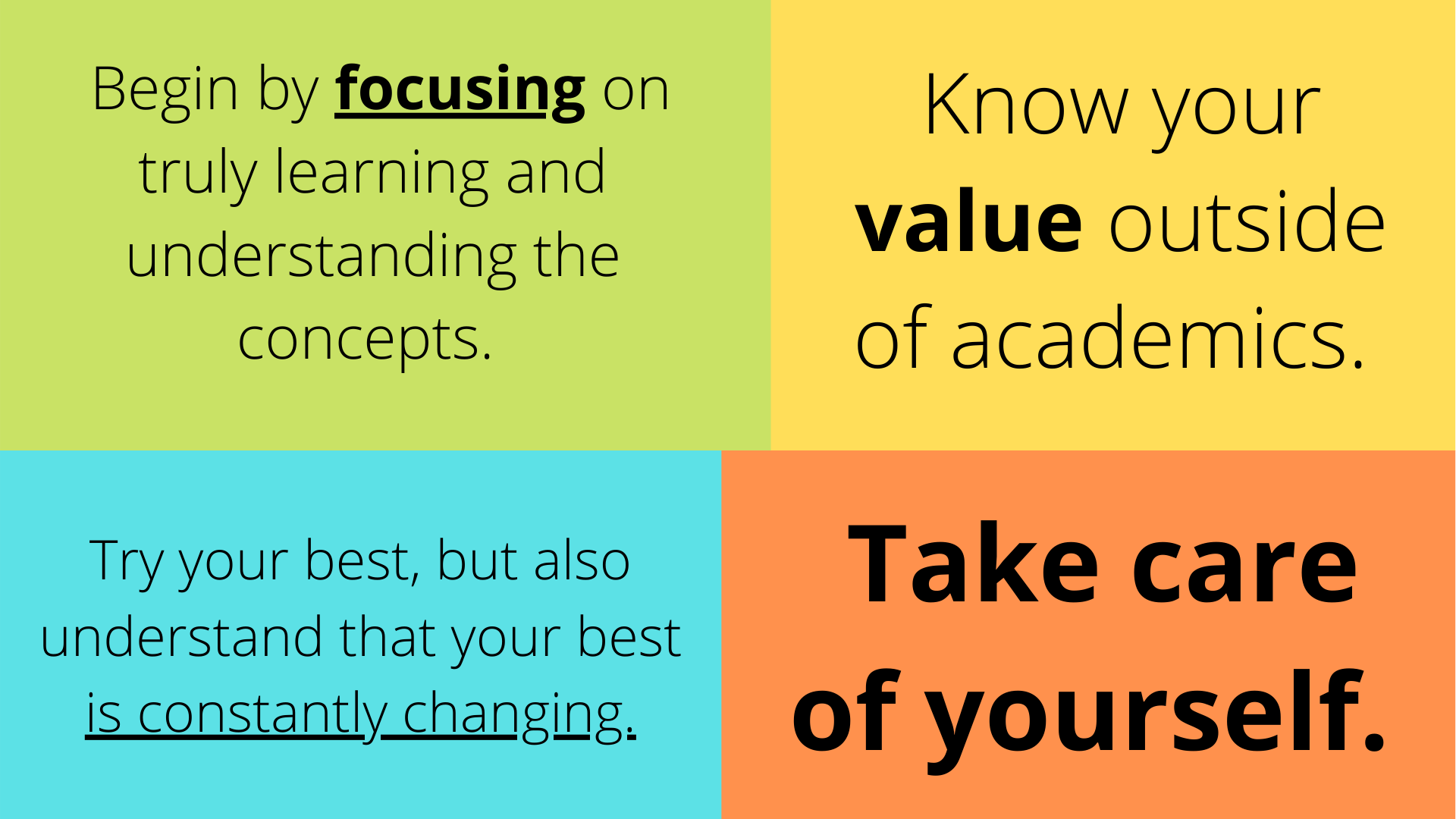 (Courtesy of Health Promotion and Wellness)
(Courtesy of Health Promotion and Wellness)Something that many college students commonly experience is pressure to succeed in their academics.
Whether this pressure comes purely from oneself or additionally from those close to them, such as family members, it is important to understand how to handle it. As with any form of stress, pressure to succeed in academics can lead to many physical and psychological effects. Prolonged and intense pressure can lead to trouble sleeping, appetite changes, irritability and many other effects.
With the understanding of how stress can negatively affect both the brain and the body, let’s take a look at a few ways to decrease the weight of this pressure. When learning about new concepts in class, begin by focusing on truly learning and understanding the concepts. It is easy to focus solely on getting a good grade in the class, or the possibility of getting a grade that is less desired. However, if you shift the focus on understanding the concept before focusing on attaining a certain grade, there is less pressure to simply repeat the information for the chance of gaining a specific amount of points. That way, when it is time to show this knowledge on a quiz or assignment, it will be easier and more natural for you to show an understanding of the knowledge.
- Try your best, but also understand that your best is constantly changing. For example, your best may be different on a day when you got eight hours of uninterrupted sleep and were able to eat a great breakfast, versus a day when you were coming down with a cold and there was loud construction going on across the street from you. While some “bests” may end up with different results than others, allow yourself to feel empowered by the fact that you did everything in your power to succeed. If the results were not what you were hoping for, be sure to give yourself grace and understanding to allow yourself to be resilient and continue to do your best.
- Know your value outside of academics. Understand that all of us have value and worth that have nothing to do with what we do or do not achieve in school. If you are struggling to recognize this, try creating a list of things you love about yourself that does not include things like grades or GPA. For example, are you good at listening and supporting friends? Have you seen major improvements in your skills at watercolor painting over the past few months? Do you continue to try hard in everything that you do, even when it is hard? All these things have little, if anything, to do with academics. Yet, they are still traits that are important and valuable to have. Try to look at yourself holistically to understand that you are great regardless of the grade you got on that essay.
- Take care of yourself. If you neglect your personal needs, it will be harder to focus on achieving what you want to achieve. Similarly, if you are able to reach your aspirations, it will not be as enjoyable or as gratifying because of the exhaustion and frustration that comes from neglecting your personal needs.
While it is important to work hard in academics, it is important to balance your drive to succeed and your mental health and stress levels. In doing so, the process of achieving in academics will be much more fun and rewarding. If you need help or want someone to talk to, feel free to email the Office of Health Promotion and Wellness at
hpw@depaul.edu.